May 8, 2015 | Consulting
Hiring a Consultant: The Pros & Cons
When you reach a record high in your organization’s production or sales, your perspective and projections for the future should be bright. After all, this is what your organization has been striving to achieve. For some manufacturers, however, the key to maximizing their performance comes with a little bit of help from an outside source.
Consultants are third-party entities who come into your facility to gain an understanding of how your operations work and offer strategies to further improve upon what you’ve established. Rather than assigning an employee with the task of streamlining your current operations, consultants offer specialized assistance to optimize your organization.
As a manufacturer, hiring a consultant could be the move that’s needed to transform your organization into one that is even more efficient, prosperous and lean. Here, we’ll outline some of the job duties of consultants, their benefits and disadvantages should you decide to hire one for your organization.
 What Consultants Do
What Consultants Do
Growth Strategies
Growth is the goal for every business owner, regardless of industry. In manufacturing, achieving sustainable growth can be more difficult due to several factors in and around the industry. Often times, the problem with growing a manufacturing business is due to the fact that innovation can be slow and risky.Here is when hiring a consultant pays off. When an organization is aware of its limitations and has clear goals, but doesn’t necessarily know how to implement a proper strategy to promote growth, a consultant should be able to offer a sound solution.
To foster growth, a consultant may use a variety of tactics to help manufacturers innovate new products quicker, while limiting the risks and reducing production costs.
Develop the Workforce
As older workers retire and younger ones may not have a clear understanding of what the industry has to offer, it can be a struggle to retain good talent as a manufacturer in 2015. Consultants aid organizations by bringing customized training to their facilities which helps to prepare their staffs for new technologies that may be coming in the near future.
To get younger generations interested in manufacturing, some consultants make a strong effort to recruit milennials by showcasing their industry. For instance, Manufacturing Day is a national event where manufacturers can host an open house at their facility and invite local area schools. This gives students an inside view of manufacturing and potential career options for the future.
Implement Lean Operations
The concept of continuous improvement is at the core of lean manufacturing. And while it may be easier to implement in a small manufacturing facility that only produces one product, it can be overwhelming for medium- to large-sized manufacturing companies that offer multiple products with multiple production processes.
Consultants aim to eliminate the waste in several areas while streamlining company processes from the front office to distribution. In short, you and your consultant should work together so you both have a clear understanding of what your clients need and the steps that need to be taken to deliver results with the least amount of wasted effort.

Supply Chain Optimization
Manufacturers that benefit from a consultant’s strategy to improve the supply chain are better positioned overall to develop, create and distribute better products at a lower price point.
This would require a focus on the entire supply chain. However, the benefits of having an outside consultant with supply chain experience would garner benefits that far outweigh the major effort that’s required for this task if you used a current employee.
Consulting Benefits
Enjoy Help from a Specialist
Your consultant will likely have experience in your exact field and have past projects that may mirror your situation. This helps to give you peace of mind knowing that your business is being guided by an expert who has seen your situation before.Get an Outside Take on Your Operations
Sometimes all it takes to see the trees through the forest is an outside perspective. Rather than trying to improve operations from the inside out, having an outsider offer their view of your current state of business may clear things up as to how to achieve growth and improve overall efficiency.It Costs Less than Hiring a New Employee
Hiring an employee rather than a consultant can get costly with having to pay for benefits, work space, technology and more. Plus, consultants are often hired to tackle a particular project within a specific timeframe. With that said, you'll have to pay that consultant far less than if you were to hire a brand new full-time employee. Of course, the rates depend on the type of consultant you hire and the scale of the project.

Consulting Disadvantages
Get Prepared for Honest Feedback
Hiring a consultant to steer you in the right direction doesn’t come without its challenges. Their job should be to eliminate practices that are doing more harm than good in your organization — not to insult your intelligence.The relationship between a manufacturing organization and consultant should be professional, collaborative and friendly. Sometimes a piece of advice may seem like a criticism.
Remind yourself of the common goal — which is to improve your company’s operations. If you find you cannot work collaboratively with a consultant and there are personality clashes, it might be best to search for a new consultant who you can work with constructively and offers solid advice about your business and how to improve it.
Missing the Point
While consultants should be experts in creating customized solutions for each business, some may still approach the job with a one-size-fits-all mentality. Rather than offering their solution and leaving before it’s properly implemented, consultants should be held accountable should their strategies not live up to your expectations.Conclusion
While consultants are often hired to focus on one project, their success in that assignment can lead them to be kept on board longer to help in other areas. This would be an ideal situation as both parties would benefit equally.
As with all hires, your organization should weigh the advantages and disadvantages of each potential consultant and take into account their specialty and experience. For more on how to make the right choice in hiring your manufacturing consultant, contact one of our experts today!


